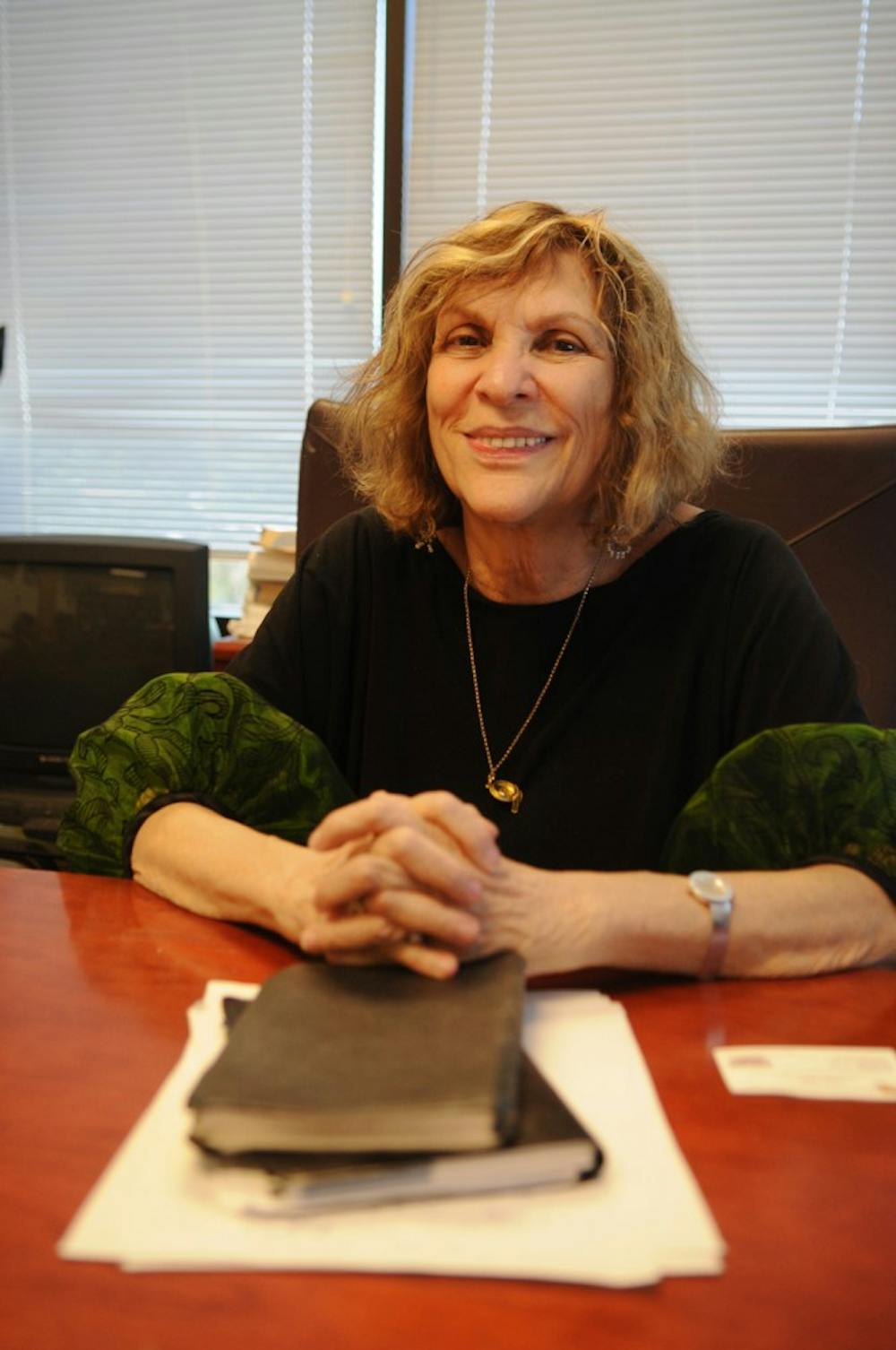
When Penn professor of clinical psychology Edna Foa received an e-mail from Time magazine telling her that she was on this year’s 100 Most Influential People in the World list, she was surprised, to say the least.
“I thought that someone was pulling my leg,” she said.
Although she was a fairly frequent reader of Time, she had never bought a Time 100 issue. “I thought that it was mostly movie stars and basketball players and politicians.”
But according to her colleagues at the Center for the Treatment and Study of Anxiety — which Foa directs — the recognition is well deserved.
Thirty years ago, before the term post-traumatic stress disorder (PTSD) was used in mental health discourse, Foa was wondering about how individuals processed disturbing and distressing events.
Her curiosity eventually led to groundbreaking therapy for PTSD patients in a treatment called prolonged exposure. The technique has two components: patients relive traumatic experiences in their imagination and expose themselves to real-life distressing situations. After repeated exposure, patients use emotional processing in order to desensitize their reactions of anxiety.
The U.S. Department of Veterans Affairs is now using prolonged exposure to treat PTSD patients, thanks to Foa’s treatment program.
“If you think about influence, affecting people’s lives, she has such an effect … people who work with trauma and want to deliver the best treatments know her name,” said Psychiatry professor Seth Gillihan, a Penn alumnus and clinical psychologist at Foa’s center.
In addition, working for greater access to health care has been one of Foa’s passions.
“A lot of times people come to us after suffering for years because they don’t have access or information,” Foa said, citing the free clinical studies that her center offers as a key incentive for patients to start treatment.
“We can help someone who had PTSD for 30 years,” she said. “But if you’re 55 and you’ve already lost your job, your wife and your children, you can’t get any of it back. People need access to health care, and they need evidence-based treatment.”
Yet despite her accomplishments and accolades, Foa remains humble, more focused on the goals of her work than on her personal career.
“She has a striking ability to galvanize others around ideas and work that she sees as important,” Norah Feeny, the director of Case Western University’s PTSD program, whose first serious job was under Foa, wrote in an e-mail.
Foa “stealthily and with little fanfare contributes to the benefit of others,” Elna Yadin, a clinic director in Foa’s center, wrote in an e-mail. “She is keenly aware of patient suffering.”
But it seems like Foa’s newfound stardom isn’t getting to her head.
“For me, I think what is important is that people are paying attention to the work we do with army veterans, with soldiers,” she said, dismissing her fame.
“She always says that while her role in the treatments might be eventually forgotten, she hopes that the things we learn will continue to thrive and grow,” Gillihan said.
Just last week, Foa found herself at the Time 100 Gala. “It was so full of people, it was a mob scene,” she said.
“I didn’t even know that Lady Gaga existed,” she added with a smile.
Her favorite part? “Prince was spectacular,” Foa said. “The crowd was going crazy. It really looked more like a nightclub show than a gala.”
The Daily Pennsylvanian is an independent, student-run newspaper. Please consider making a donation to support the coverage that shapes the University. Your generosity ensures a future of strong journalism at Penn.
DonatePlease note All comments are eligible for publication in The Daily Pennsylvanian.








